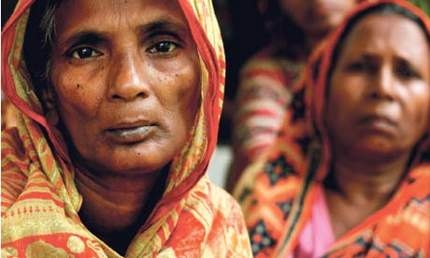 A few years ago, I saw a newspaper article about an older man who had left his home and never returned. The first thing that crossed my mind was that this man could have been suffering from dementia and didn’t even realise.
A few years ago, I saw a newspaper article about an older man who had left his home and never returned. The first thing that crossed my mind was that this man could have been suffering from dementia and didn’t even realise.
There must be so many more like this, especially in Bangladesh where no nationwide survey has ever been done to find out.
The impact of dementia in Bangladesh
With World Alzheimer’s Day today, I thought it the perfect time to reflect on the impact of dementia in Bangladesh and what we’re trying to do about it.
Bangladesh has a relatively young population, with 8% of the total population of 160 million being over 60, or 12 million people. One can imagine that among 12 million older people there would be at least a few thousand suffering from some form of dementia.
Older people who are suffering from memory disturbances are often stigmatised or branded as “foolish”. Often they will not receive the support they need or deserve from their family or society. The main reason for this indifference in our society is that we are simply not sensitised to this issue.
The situation can be even worse in rural villages than in towns, as there is often more social taboo associated, more migration of younger people to cities or abroad and a lack of proper medical and community-based support services.
Vulnerabilities caused by dementia
I was speaking to a friend in my village in Gazipur who told me that his father became almost “mad” in his old age. Someone took advantage of his vulnerability and made him sign some documents. They lost all their landed property including the house they were living in. More than likely is that my friend’s father was suffering from dementia.
So many other older people all over the country are being taken advantage of because of medical conditions, like dementia. But the most important point here is that any older men or women with dementia should be legally protected from such things happening to them.
The somewhat good news is we still live in a society where connections within a family are strong, albeit eroding. Life is becoming more complicated for the children of older people than before.
In Dhaka, for example, people work hard all day in an office and get stuck in traffic for a few more hours on the way home. The small leisure time one gets has to be divided between spouse, children and parents. For the older parents (often the least important among this three) there is hardly any time left.
I attended a meeting with a few older people in a place called Moghbazar recently. It was a long meeting, because everybody had so many things to say that they couldn’t voice anywhere else. In the end I asked one person what they thought was the most important service for them.
His answer was that he wished he had more people to talk to. Loneliness leads to depression. And eroding social bonding makes life even more difficult for patients with dementia. We need to build up community-based support structures and train caregivers to support families to take care of senior citizens.
Creating awareness is a priority
Considering all the above, the NGOs working on dementia issues in Bangladesh, with help from Alzheimer’s Disease International, have formed a working platform called “Dementia Action Alliance of Bangladesh”.
Creating awareness is the first priority. Training healthcare workers on dementia and supporting organisations to identify “caregivers” with expertise to take care of dementia patients is also in the agenda. Taking care of dementia patients in Bangladesh is still not a priority in the country’s healthcare planning. Dementia is not only a medical problem; it has many other social and legal implications.
However, everybody involved in dementia care agrees that it has become an urgent necessity to develop a comprehensive awareness and management programme and World Alzheimer’s Day is a good time to start raising the profile of this important issue.
Find out more about the Dementia Action Alliance of Bangladesh.
